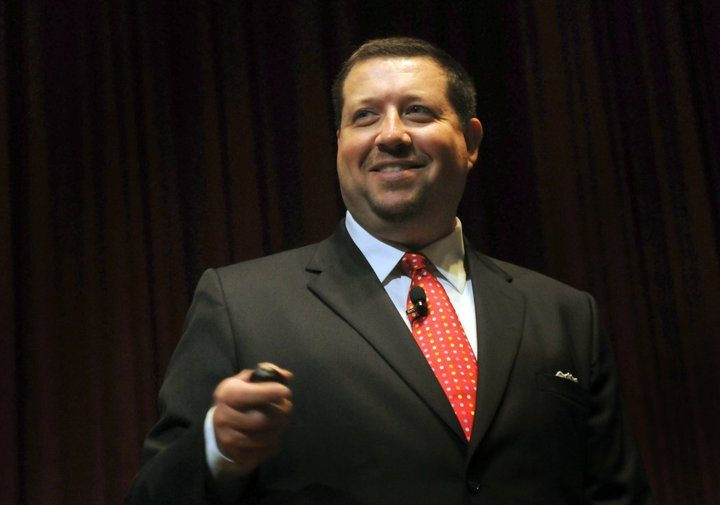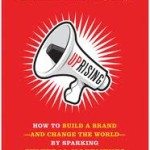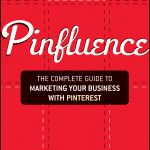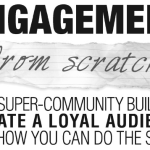Jim Kukral, the founder of the Author Marketing Club (a great resource I found while marketing my new book) was my guest recently at the Word Café. I’ve pulled the highlights together for you here.
Q: What’s the Author Marketing Club about? And why did you start it?
A: AuthorMarketingClub.com is a free resource for authors who want to learn how to market their books better. When I first got into publishing, I realized quickly that most authors really have no idea how to market their books. I’m an internet marketing guy. I’ve been doing marketing online for over 15 years. So when I wrote my books, I was able to take what I knew about marketing online and apply that to marketing my books. Most other authors don’t have that skill. They know a lot about writing for their genre, but not so much about marketing online. So that’s why I created it. It’s a place where authors can come learn and network with other authors. You can watch tutorial videos, exchange manuscripts for reviews, ask questions and get answers, and basically learn how to market your book. And it’s free. Everything’s totally free.
Q: The thing I found really attractive was the networking with other authors and the ability to ask for help with reviews. When I published my book, I had a great cadre of folks in my inner circle who were willing and able to help with reviews. But many folks don’t have that available to them. It’s very cool that you’ve created that “well” to draw from. Plus, it’s one thing to ask a colleague to give you feedback. It’s another to have a writer tell you what they really think. Writers always approach content from a more critical perspective. We’ve got a different eye with regard to how things flow and so on. How long have you been providing this service?
A: We’ve been live for just over three months and we recently reached the 1000 member mark. And all without any paid marketing. The members are loving it. We’re doing live webinars every other week, which are then recorded and available for folks to watch when it’s convenient for them. How to get book reviews. How to upload your book to Amazon. A lot of great information for everybody.
Q: I also love your daily emails where you share the free books with folks. How does that work?
A: We feature our authors’ books with the other members via our email list. And if you want to get your book shared, there’s a form that you need to fill out on our website. For example, if you’re a Kindle Select member, you can make your book available for free for up to 5 days during any 3-month period. And on those days, you want to get the word out as much as possible. It’s important to get as many downloads as you can so that you increase your reach, grow your audience and move up your ranking on Amazon. That’s where we help. You tell us what day(s) your book is going to be free, and we feature it in that day’s email. It’s a great way to promote your book.
Q: Marketing is the thing that I do — not book marketing, per se — and while there’s a lot of overlap between marketing a product or service and a book, I’ve also found differences. There’s always something new to learn. What do you feel is most important for new authors to know in terms of marketing their book?
A: Just like any type of marketing, when you’re promoting yourself, it can be a challenge. You don’t want to come off as over-bearing (stay away from repeating “buy my book!” to everyone you meet). You want to create content around your book. So if your book is about how to train iguanas, then you’d want to do some webinars on that same topic. Give classes. Write blog posts about it. Create videos or podcasts. There are a lot of ways to expand on your book. Most people take the wrong approach. They see all these social media tools and they think, “Great! Now I can get the word out through all these channels.” And that’s not why people get online. They’re online for two reasons: to have a problem solved. Or to be entertained. And when you create content that does one or both of those things, then you’re going to make the right connections and be able to build your audience. Figure out what’s in your book or message that can help people. Then, create content around that and people will be much more likely to buy your book. 
Q: You’re right. You know I see authors not helping sometimes. There’s one author who I follow on Twitter who recently published a book and at least half the time his posts are photos or comments about which store he’s found his book in. “Look! I found it in the airport bookshop!” That gets old real fast. And like you said, it’s not entertaining me or helping me. It’s just feeding the ego of the author. There’s definitely a balance between self-promotion and being helpful. How much self-promotion do you think it’s okay to do?
A: There’s a difference between promotion to your fans and to those who don’t know who the heck you are. This is why every author needs to have a platform. And every author needs to have a certain amount of fans. Have you read 1000 True Fans? The premise is that if you have 1000 true fans, you can pretty much build a career around that. Your goal is to build that audience base first. The way you build fans is to consistently provide high quality information over and over and over again. And you give away so much that people can’t believe how much you’re giving them. Then, when it’s time for you sell something (like your book), those people will buy it almost no-questions asked. That’s the true way to build an audience. Look at the biggest authors in the world. They’ve got these fans who will buy their next book without question. Every time Stephen King writes a new book, he sells a ton of them immediately. And nobody even cares what it’s about. That’s the power of a platform. That’ what authors need to be focusing on. Building their fan base.
Q: I totally agree. But let’s revisit that term “platform.” I think it gets thrown around a lot and many folks probably aren’t sure exactly what it means.
A: Sure. The platform is more than just a blog. It’s your message, your brand, your audience and all the channels you use to share them. Years ago, people used to call it “standing on a soap box.” You would stand in the middle of the town square and shout your message from that platform. Today, your platform is like that, but much much more powerful. With an online platform, you have the potential to reach people all over the world. Building a strong network of fans who you communicate with via Twitter, Facebook, LinkedIn and your blog, is what you need to have in order to sell books. I tell my kids, “Don’t try to get a job at the restaurant. Aspire to own the restaurant.” When you own the restaurant, you can do whatever you want. And it’s the same with your platform. When you own the email list, when you own the LinkedIn group or the Facebook group, or whatever channel you’ve built, you’re the leader. You can communicate anything you want to those communities. So think about owning the community. Not just being a part of the community.
Q: I totally agree with you on the soap box analogy. You really need to figure out what you stand for, and what your message or angle is, in terms of branding.
A: Yep. If you’re a fiction author it’s a little harder. Because most people are just reading your stuff to be entertained. Doing a webinar on vampires isn’t unheard of, but it’s not usually something that people would attend. As a nonfiction author, you have it a little easier because you can teach your audience bits and pieces that relate back to your book. Also, if you write books about iguanas, you’re probably not a marketer. But you still need to figure out who your readers are and where they are and how to find them. It’s tough. You don’t just throw your book up on Amazon and have it be magically downloaded by thousands every day. You do need to focus on a particular niche.
Q: I see so many people who know a lot — for example food bloggers — who will blog about everything under the sun related to cooking, but they don’t really have a clear theme to their blog. And they want to pull it all together into a book, but they don’t really have an over-arching purpose to all those recipes. They’re missing a focus.
A: You’re right, you’ve got to have an angle. When you pick a niche topic, you can go really deep and have a much better chance of success. And then your book can act as a lead generation machine.
Q: That’s an important point. What advice would you give on how to write a book for lead generation?
A: Well, that’s how I market my services. I get my readers to join my email list, follow me on Twitter, and so on by asking them to right inside the book. At the end of every book (and sometimes even in the middle), I suggest they sign up for my email list. And they do. Sometimes we forget that you always have to be asking for the sale. When folks sign up for my list via my books, they get a series of emails delivered to them over a six-month period that talks about what I do, my products and services — but in a way that teaches them things, too. This is how they get to know, like and trust me. And when they need someone like me, they will call and set up and appointment. Books are the ultimate business card. You can get books spread all over the place. More than you could even ten years ago. I’ve used the Kindle Select program (with the free option) to get copies of my books delivered to more than 25,000 people all over the world in the last 3 months. Every single one of those is a potential customer for me. That’s how I think about it. I got a call the other day from one of those readers who works for a prominent radio personality. They were planning on getting out of traditional publishing and wanted to explore self-publishing and how to market and sell books that way. So we talked. And it looks like I’ll be doing some consulting for this very well known person who had an employee find my book and then find me. And it didn’t cost me a dime to get that lead. In the past, I would’ve had to spend thousands of dollars in advertising to have that kind of reach.
Q: That’s an awesome example. And it does work. I had a friend who told me how she would bring a copy of her book with her to every meeting with a potential client. Without fail, she would close the sale every single time she left a copy with the prospect.
A: Close ratio is a big deal. You can increase your close ratio by 30-40-50% or more, just by sharing your books with your target audience. It’s the best thing you can do, believe me.
Want to learn more? You can find Jim over at JimKukralBooks.com, AuthorMarketingClub.com and DigitalBookLaunch.com Jim’s books include “Attention! This Book will Make you Money,” “Write an F*ing Book Already” “Business around a Lifestyle, vol I” (Volumes II and III coming out later this year), “Internet Marketing for Business Answers,” and more. You can listen to our entire interview here.











Tea:This is really great info, but I’m having trouble connecting with his websites.